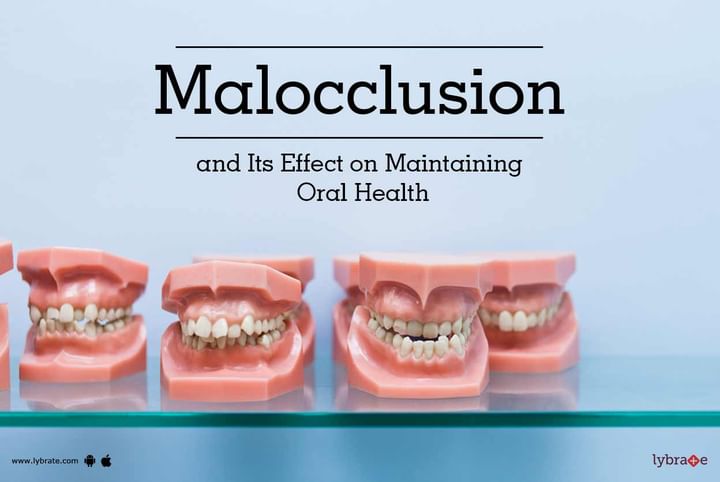Malocclusion and Its Effect on Maintaining Oral Health
Malocclusion refers to the general arrangement of teeth and the manner in which the lower and upper sets of teeth fit. In optimal conditions, the upper set of teeth should fit slightly over the lower set of teeth. Malocclusion is a condition wherein the teeth are improperly aligned. Often, malocclusion tends to be a hereditary condition. The symptoms that indicate the occurrence of malocclusion include:
-
Abnormal teeth alignment.
-
Irregular facial appearance.
-
Discomfort or difficulty during chewing or biting.
-
Mouth breathing (breathing using the mouth instead of the nose).
Malocclusion and Oral Health-
-
Malocclusion, also known as bad bite, is capable of affecting your overall oral health. This is because crowded and crooked teeth tend to hinder the proper cleaning of the mouth. This leads to tooth decay, gum diseases and even tooth loss.
-
Malocclusion has a negative impact on the maintenance of oral health. Studies showed individuals without malocclusion were able to maintain a better oral hygiene in comparison to those with the condition.
-
The improper alignment of teeth makes it rather difficult for the brush to reach in certain parts of the teeth thereby failing to remove bacteria and germs from particular areas for an extended period of time. This results in bad breath.
-
It also makes flossing difficult and it creates hindrance in the way of maintaining proper oral hygiene.
-
The improper adjustment of teeth leads to gum decay owing to the faulty cleaning. It promotes the growth of harmful bacteria that leads to weakening of tooth and gums.
- Owing to the misalignment of teeth, chewing becomes difficult. This often goes to hamper and mar the way one speaks as well. Malocclusion also results in wearing off of the tooth enamel. This the teeth to appear yellow due to the inability of the brush to reach every place. If you wish to discuss about any specific problem, you can consult a dentist and ask a free question.



+1.svg)
